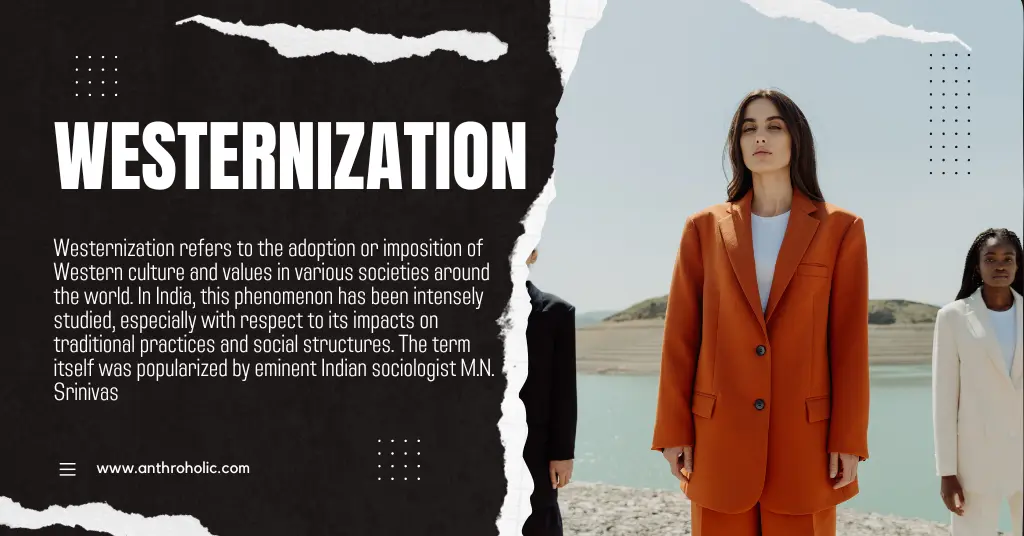AI Answer Evaluation Platform Live Now. Try Free Answer Evaluation Now
Westernization
Westernization refers to the adoption or imposition of Western culture and values in various societies around the world. In India, this phenomenon has been intensely studied, especially with respect to its impacts on traditional practices and social structures. The term itself was popularized by eminent Indian sociologist M.N. Srinivas [1].

Definition of Westernization
In the Global Context
Westernization describes the influence of Western values and norms on non-Western cultures. This influence can manifest in various domains, including politics, economy, social structures, and even daily lifestyles.
In the Indian Context
In India, Westernization signifies the adoption of Western technology, institutions, and lifestyle, often conflicting with traditional Indian culture [2]. This section will further explore the facets of Westernization in India.
M.N. Srinivas and Westernization
M.N. Srinivas, a prominent Indian sociologist, defined Westernization as the changes brought about in Indian society and culture due to over a century-long British rule [3].
Westernization vs. Sanskritization
Srinivas made a distinction between Westernization and Sanskritization, where the latter is the process of emulating the rituals and values of the Sanskritic (upper caste) culture. Westernization, according to him, was independent of caste and had a more profound impact on secular aspects such as technology, lifestyle, and legal systems [4].
Effects of Westernization
Positive Impacts
- Technological Advancements: Westernization has led to technological improvements in various sectors, like health, education, and infrastructure.
- Legal Reforms: Introduction of progressive laws that protect individual rights.
Negative Impacts
- Cultural Erosion: Loss of traditional values and practices.
- Social Disparity: Creation of social inequalities and tensions between Westernized urban elite and rural masses.
The Debate: Traditional Values vs. Modernization
The balance between preserving traditional values and embracing modernization remains a critical debate in Indian society. Srinivas himself recognized the complexity of this issue, emphasizing that Westernization did not always mean a decline in traditional values but could also lead to their reformation.
Case Studies
Education System
The Indian education system has been greatly influenced by Western models. While this has brought significant improvements in scientific and technical education, it has also been criticized for undermining traditional Indian knowledge systems.
Urbanization and Lifestyle
Urban centers in India often reflect Western lifestyles, leading to a cultural shift and the creation of a new social class. This has both integrated and divided different sections of Indian society.
Conclusion
Westernization in India is a multifaceted phenomenon with both positive and negative impacts. The work of M.N. Srinivas provides valuable insights into understanding the complex relationship between Western influences and Indian society. The continuous negotiation between tradition and modernity remains a crucial aspect of India’s evolving socio-cultural landscape.
References
[1] Srinivas, M. N. (1966). Social Change in Modern India. University of California Press.
[2] Naik, J. (1982). Cultural Impact of Westernization in India. Historical Review.
[3] Srinivas, M. N. (1956). A Note on Sanskritization and Westernization. The Far Eastern Quarterly.
[4] Srinivas, M. N. (1952). Religion and Society among the Coorgs of South India. Oxford Clarendon Press.




